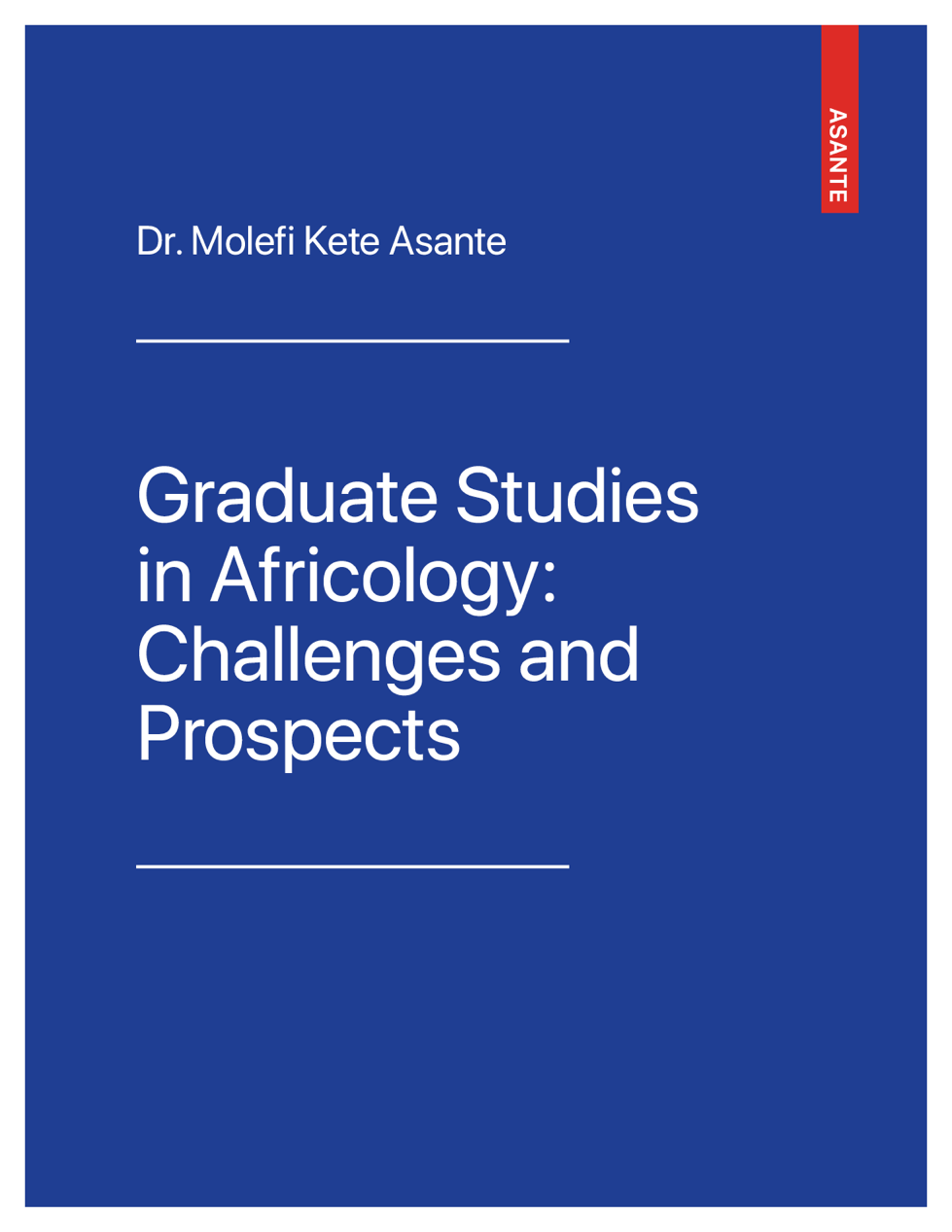Graduate Studies in Africology: Challenges and Prospects
by Molefi Kete Asante
The Western Journal of Black Studies, 2010, Summer, 34, 2
Excerpt
The creation of the first doctoral program in African American Studies in the United States in 1987 at Temple University was a watershed event for several reasons. A few years later free standing departments at the University of Massachusetts at Amherst and the University of California at Berkeley also had doctoral programs. The Temple Program advanced both a theoretical and practical thrust in the American Academy with implications for other disciplines and fields. In fact, it was a political advancement in the sense of opening space for other perspectives than Eurocentric ones to be placed on the intellectual table. No traditional discipline, such as Anthropology, history, sociology, or literature, has been the same since the revolution that brought African American Studies doctoral programs into existence (Asante, 1998).
Now we are faced with many new challenges, some of them rooted in our past, but most directly tied to the inability of the traditional disciplines to allow us to break out for our own liberation. Although we have a cadre of intellectuals who are committed to the ideas of academic excellence and social responsibility we also have comprador intellectuals unwilling to devote time or dedicate their lives and careers fully to Africology. This is a tough but sad truth and it is one that will forever hound our graduate training. The immediate academic aim in graduate training must be to refocus the major graduate programs to advance the vision of the field. Those programs must make advances in several concrete areas: disciplinary clarity, faculty recruitment, and theory-building. It is our concentration on these areas that will assist us with graduate training and in solving methodological problems as well as help with content augmentation from the classical traditions of African people as our bridges to understanding African phenomena. These are not all the areas that must be dealt with but they are critical and important for the creation, raising, and sustaining of a consciousness that will elevate graduate training in Africology.
You might also be interested in:
The History of Africa
Being Human Being
100 Greatest African Americans



